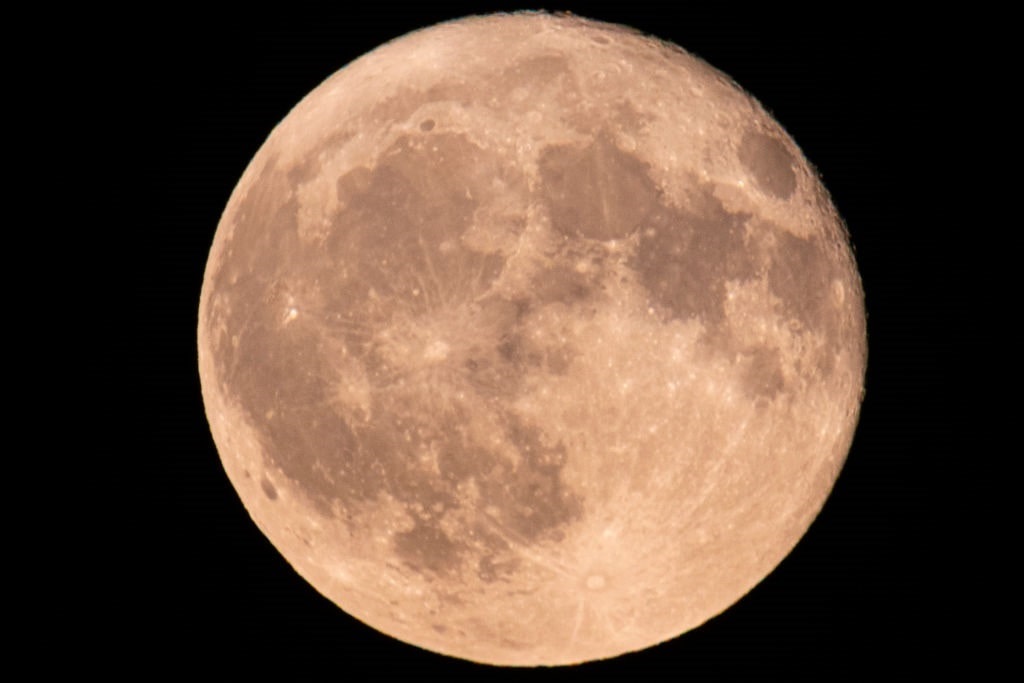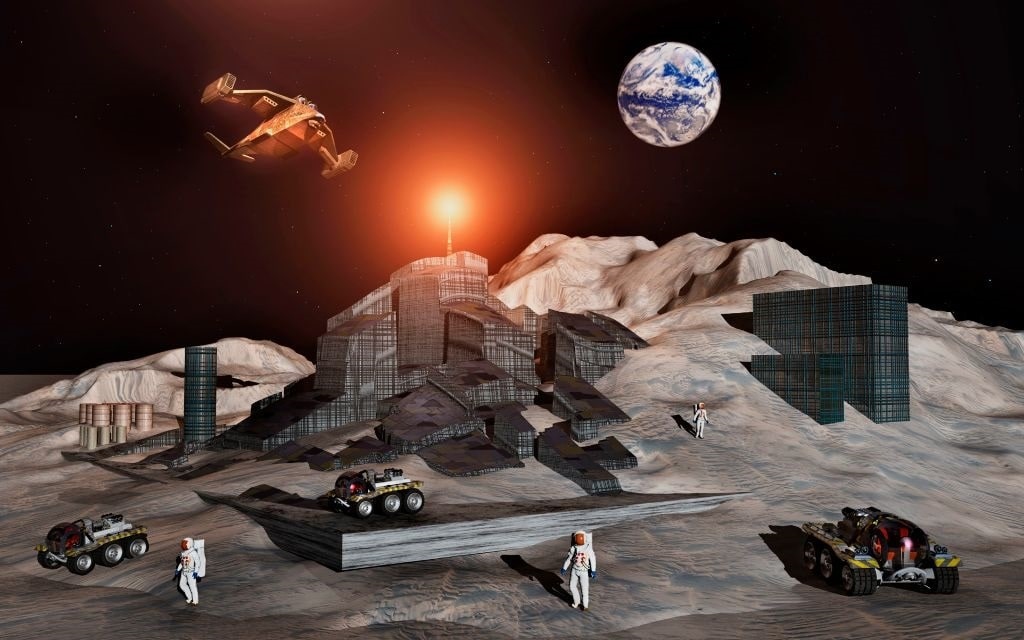Space mining is the new international space race, and according to witnesses testifying before the House Committee on Natural Resources on Dec. 12, the United States is way behind. So far behind, in fact, that it is being called a national security threat.
Why Space Mining Is Important
Chairman Bruce Westerman (R-AR) outlined the importance of mining other planets and the moon, which contain minerals earthlings need, such as copper, cobalt, and lithium to name a few. These are used in such products as smart phones, missile defense systems, satellites, electric vehicles, and renewable energy technologies.
“The global demand for minerals is expected to exponentially rise in the decades ahead,” Westerman said, adding that, according to the World Bank, the demand will increase by nearly 500% by 2050. The need for lithium and graphite, used for EV batteries, is expected to grow by 4,000% in the next few decades. “Climate goals further drive the demand for minerals,” he continued. “For instance, to achieve net-zero emissions globally by 2050, the world will require a sixfold increase in mining just by 2040.”

(Photo by Nicolas Economou/NurPhoto via Getty Images)
Greg Autry, director of Space Leadership, Policy, and Business at the Thunderbird School of Global Management, Arizona State University, explained the moon shares many of the material properties of Earth, describing “basins” that were created by asteroid impacts. “These impactors were often composed of nickel-iron, platinum group metals, and even rare earth elements. Some of these will have interacted with molten lunar crust and water and may have been distributed into the Moon’s crust or flowed into veins. Some of the cores may be solidly intact. Much of our minable mineral wealth that we extract from Earth is the result of similar past impacts.”
Eric Sundby, co-founder and CEO of TerraSpace, a mineral exploration company that uses artificial intelligence in the mineral analysis process, provided testimony on the space mining race and claimed the United States is far behind. The US Geological Survey found 50 minerals in 2022 without substitutes that are essential to the economy on other planets, the moon, and in the asteroid belt, he explained. However, the ability to obtain these resources is threatened because China controls around 60% of production “and 85% of processing capacity according to analysis by the USGS and Natural Resources Canada.”
The China Threat
According to Westerman, America depends too much on foreign nations to meet its mineral demands. “Most concerning,” he said, “today’s mineral supply chains are unquestionably controlled by China.” He explained:
“Through its Belt and Road Initiative and other efforts, China dominates the global critical mineral supply chains, accounting for approximately 60% of world-wide production and 85% of processing and refining capacity. The United States is import-reliant on China for 26 of the 50 minerals designated as critical by the Department of the Interior. China also dominates the mineral refining process, accounting for 85-90% of global rare earth element mine-to-metal refining. Notably, China refines 80% of the world’s cobalt, 60% of the world’s lithium, and 65% of the world’s nickel, critical minerals that are integral for modern technology and electric vehicles.”
The United States also relies on Russia for enriched uranium. “American companies are paying around $1 billion per year to Russia’s state-owned nuclear agency to buy the nuclear fuel that generates more than half of America’s emissions-free energy,” Westerman detailed.
The witnesses concurred that China is a threat. Sundby said space development and space resources will define humanity, but “this opportunity is challenged by the Chinese Communist Party, and its allies in Russia and a growing number of states, as China has launched the International Lunar Research Station Organization initiative over the last year.” He continued:
“In 2015, the Strategic Support Force was established, providing a more organized structure for the space forces of the People’s Liberation Army. It is through this institution that the China Manned Space Program is housed, which oversees all astronauts, operations, and space infrastructure development. Lastly, in 2019, the Chinese Lunar Exploration Program director equated the Moon and other celestial bodies in the solar system to a series of island chains currently controlled by the Philippines and Japan, which has been a point of contention in the CCP’s illegal territorial expansion in the South China Sea.”
Autry provided examples to show how China’s aggressive policies are hurting the environment in its quest to gain control of mining. For example, a couple of decades ago, most rare elements on Earth were mined at Molycorp’s Mountain Pass mine in California. “Then China began to aggressively strip mine and process these elements with no regard for the environment,” he said, citing an article by Tim Maughan of the BBC about the toxic environment he found in Mongolia:
“It’s a truly alien environment, dystopian and horrifying. The thought that it is man-made depressed and terrified me, as did the realisation that this was the byproduct not just of the consumer electronics in my pocket, but also green technologies like wind turbines and electric cars that we get so smugly excited about in the West.”
Autry commented that “[t]he CCP’s willingness to destroy the environment of occupied Mongolia for competitive advantage and to dump the resulting production far below market price, shuttered the U.S. mine. Having obtained a global rare earth monopoly, they jacked up pricing by double and triple digits.” The California mine, for instance, reopened in a partnership with a Chinese state-owned enterprise, and the agreement included shipping all the ore to China for processing. He continued:
“Meanwhile China threatens us with rare earth embargoes as a tool to manipulate U.S. policy; compelling DOD to fund a small domestic processing effort with taxpayer dollars. Seriously! You can’t make this up! … As they gobbled their way across the globe, Chinese law prevented foreigners from owning or controlling resources inside of China. Now that we’ve awoken to how foolish we have been, we face a difficult supply chain problem.”
Michelle L.D. Hanlon – a space lawyer, executive director for the Center for Air and Space Law at the University of Mississippi, and CEO for All Moonkind – talked about the four widely ratified international treaties governing space activities that are so broadly worded there are a lot of loopholes for space mining. One example related to ownership and use of these resources:
“[W]hile binding international law states that the exploration and use of outer space shall be free for exploration and use by all, which implies that resource extraction is permissible, it also states that a nation may not claim territory in space, which calls into question how a space resource mining operation would be able to protect its investment. Given these and other grey areas, there exists a potentially serious first mover advantage which the United States must understand and take into consideration as it implements space and natural resource policies and competes in this new space race.”
Is it the 1960s all over again – in a new space race for essential minerals needed here on Earth? Back then, the United States was a leader, charging into the unknown to reach the moon. Now, it is so far behind China that experts warn this endangers national security.




